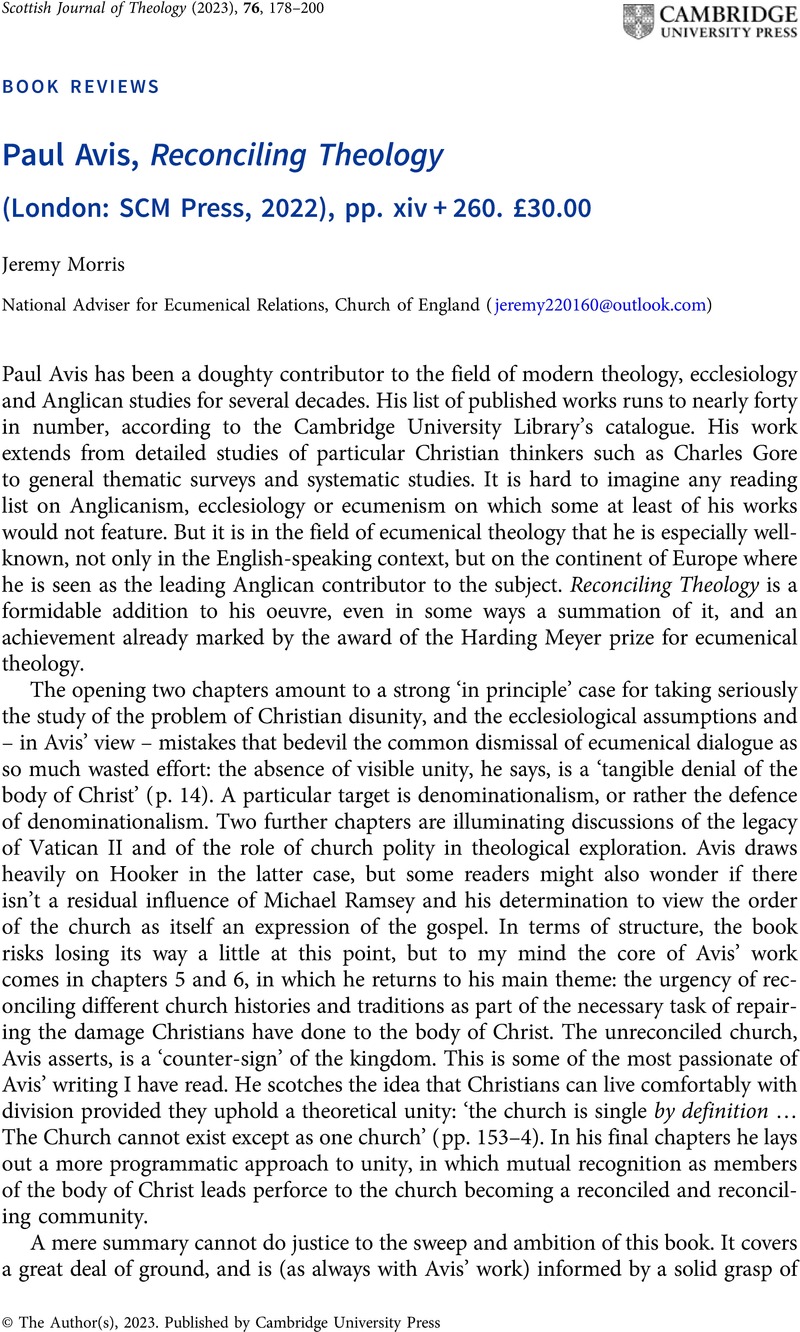No CrossRef data available.
Article contents
Paul Avis, Reconciling Theology (London: SCM Press, 2022), pp. xiv + 260. £30.00
Review products
Paul Avis, Reconciling Theology (London: SCM Press, 2022), pp. xiv + 260. £30.00
Published online by Cambridge University Press: 20 April 2023
Abstract
An abstract is not available for this content so a preview has been provided. Please use the Get access link above for information on how to access this content.

- Type
- Book Review
- Information
- Copyright
- Copyright © The Author(s), 2023. Published by Cambridge University Press



